Halifax’s Spanish speakers try to build a community
Spanish-speaking people in Halifax are a growing minority
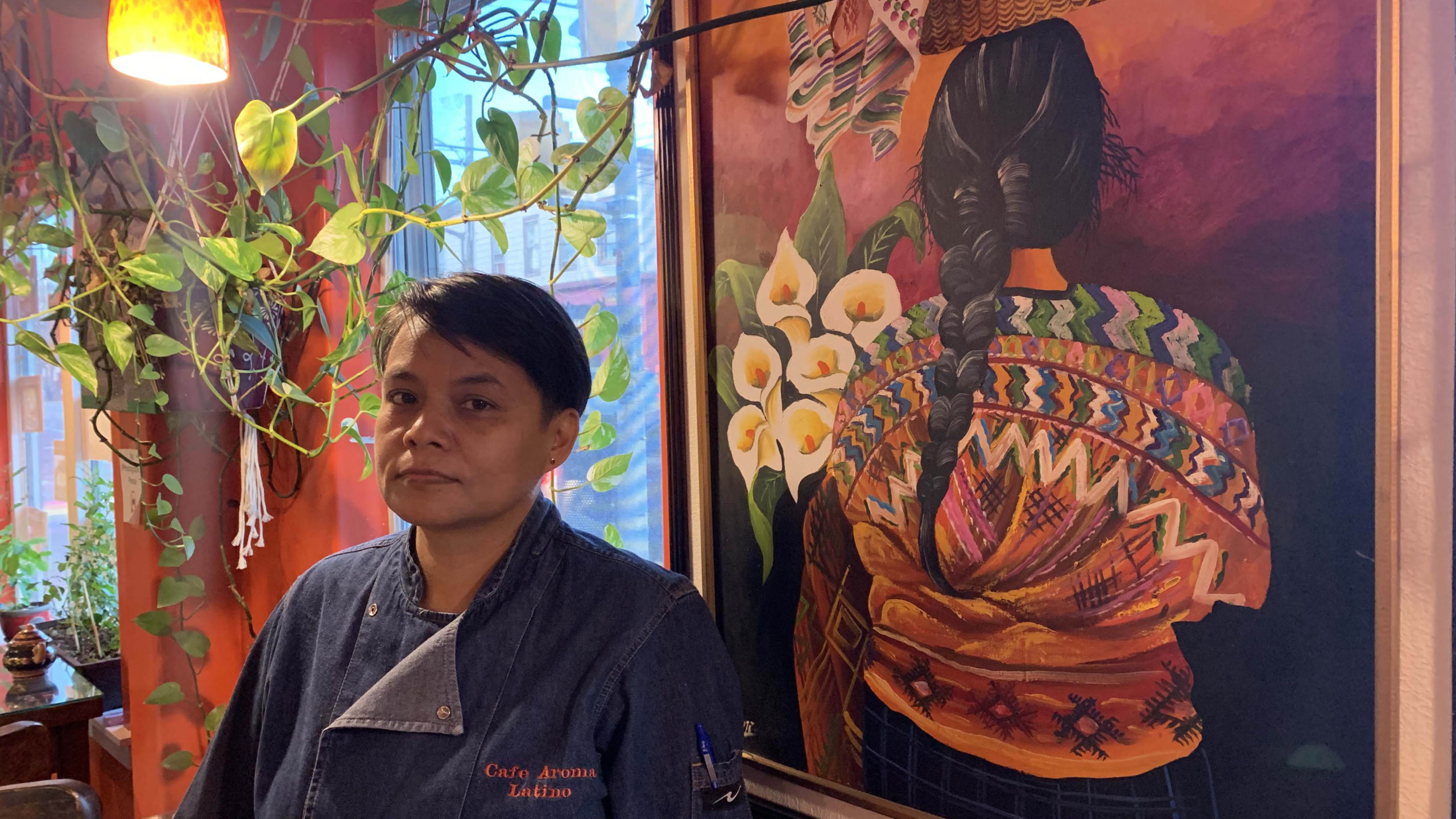
caption
Claudia Pinto described their restaurant Café Aroma Latino, as a place that is "representative of all Latin American cultures."¿Hablas Español? A growing number of Haligonians do. But they don’t always come together to speak it.
“There is people, but there is no community. They don’t come together,” Claudia Pinto said.
Pinto, who uses they-them pronouns, is one of the few Latin people who has been in Halifax for more than 20 years. Over the course of two decades in the city, they have seen the Spanish-speaking community grow considerably.
“The Latin community has grown,” Pinto said. “When I did my studies, there were about 300 people here in Halifax. Now I’m not sure how many of us there are, but I’m sure there are more than 300 people. And they’re from different countries.”
Despite the growth, Pinto said the community is not always cohesive.
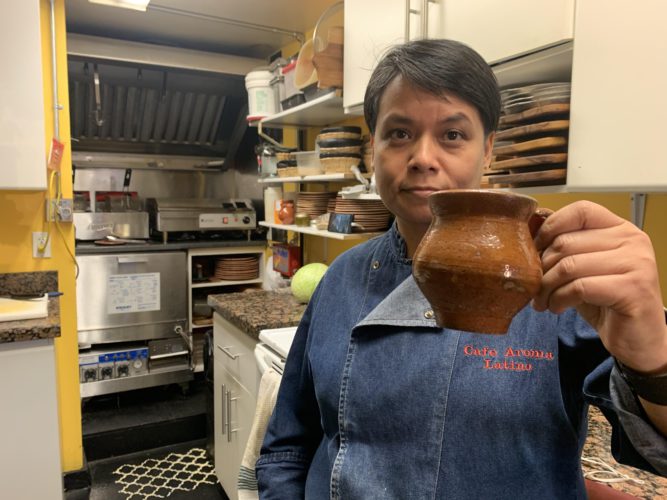
caption
Claudia Pinto poses in their kitchen as they wrap up a day of work, at Café Aroma Latino.The 2016 census shows there were 1,520 people in Halifax whose mother tongue is Spanish, and 1,880 people speaking Spanish at home. The next census is set to be released in 2022, but rapidly-expanding Facebook groups suggest the numbers are climbing.
According to the Halifax Language Institute, one way Spanish-speaking people enter Halifax is with student visas, trying to learn English. Alex Pascual, the recruitment officer at the institute, provided a list of countries.
“Most of our Spanish-speaking student population hail from Mexico, closely followed by Colombia,” Pascual wrote in an email. “In the past five years we’ve had fewer students coming from Chile, Peru, Guatemala, Argentina, and Spain.”
Very little is known about the Spanish-speaking population of Nova Scotia other than these student figures. While numbers point to an increase, is there an actual active community?
Pinto said unlike other cities, Halifax does not have a designated neighbourhood where Latin people gather, or where clubs with Latin music can host events.
“There are Latinos in Halifax, but they are spread out,” Pinto said. “They are not in a specific ‘hood, like in Toronto or bigger cities.”
Pinto owns Café Aroma Latino, one of only a few restaurants in the city that serves Latin American food. In their restaurant, Pinto cooks food representative from all Latin America, with cuisine from Mexico, Guatemala, El Salvador, Colombia and Argentina.
Adjacent to Café Aroma Latino, Pinto also owns a grocery store that sells Latin American products that can only be purchased there. This store is the reason Pinto knows the city’s Spanish-speaking population is growing.
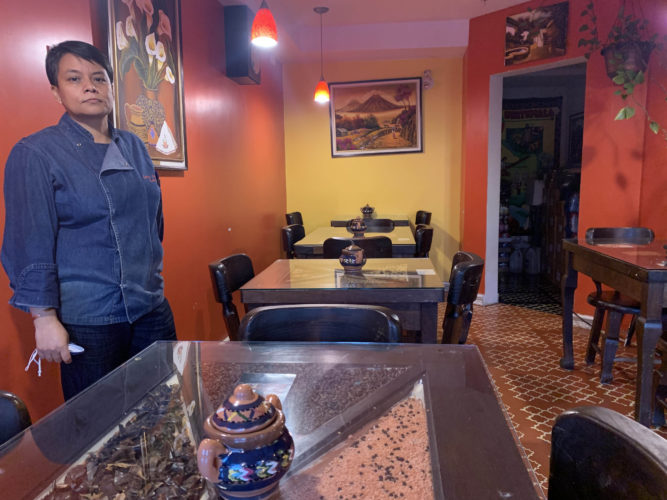
caption
Claudia Pinto’s business, Café Aroma Latino, is in the north end of Halifax.“Because of the store, and the demand I have, I know that Latin numbers here in the city are growing,” Pinto said. “Because of the volume of what I sell, and the people I see come into the store, I can tell the community is growing.”
Pinto said language is immensely important in making new Latin people feel welcome in the city.
Otoniel Olea, a Mexican student who came to Halifax to learn English, created a Facebook group called Mexicanos en Halifax, or Mexicans in Halifax, in order to find fellow Latin people in the city. As of Dec. 9, the group had 4,946 members.
“From the very beginning, when I moved to Halifax from Mexico, I decided to surf the web to find info on recommendations, and find fellow Latin people who could give me pointers about Halifax. You know, the cost of living, shopping, places to see in the city,” Olea said. “I didn’t find any of that. I didn’t find anyone. I was alone. So I decided to create the group.”
Olea said the Facebook group started with only five to 11 members within the first couple of weeks. Now, it is the go-to place for Latin people to interact.
According to data from the Facebook group, 70 per cent of members are Mexican, followed by 10 per cent Argentinean, five per cent Colombian and five per cent Venezuelan. The other 10 per cent are from various smaller countries.
Olea said he feels like the group mainly serves as a platform for information, and not so much as a community-related place.
“It makes me feel good that I generated a community online where we can help each other out,” Olea said.
“But I agree,” Olea said. “There is a virtual community that is ready to help, but there is no cultural or physical community. I don’t hear people say, let’s meet up, or let’s hang out.”
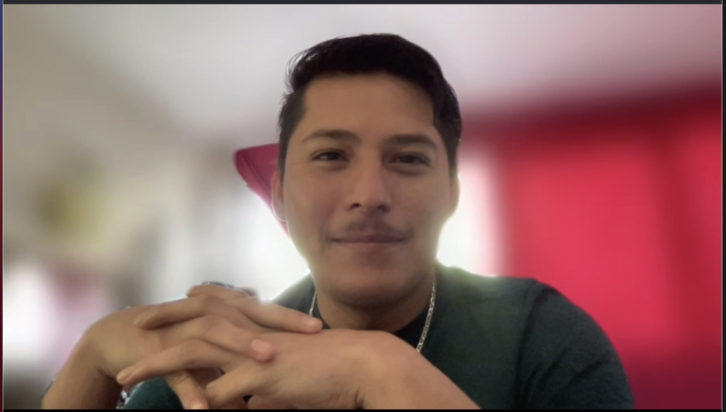
caption
Otoniel Olea created the Facebook group, Mexicanos en Halifax, in 2018.Is community connection a struggle for Latin people?
Stephanie Gomez thinks so. She moved to Halifax three months ago to start school at Dalhousie.
“In Toronto, we had an entire neighbourhood for Latin people,” Gomez said. “In Toronto, I could see it. I mean, it’s a huge place, and of course there’s lots of events. Latin events you could join and meet Latin people. I’ve not seen anything like that here.”
Laura Lopera, who moved to Toronto in 2019, and later moved to Halifax, said she noticed a big difference in the size of the Latin community when she arrived.
“When I came here, by that time, it was pretty small, like, it was just a few families that move here and there but most of them will leave,” she said.
Lopera suspects that the numbers are still increasing, but thinks there should be more resources for the Spanish-speaking community in Halifax.
However, Lopera said there are few community-building initiatives and resources for Spanish speakers in Halifax.
Andrea Pilar Ondo Nsang is a student at Saint Mary’s University who moved to Canada from Spain five years ago. She also said that there aren’t many programs to support the Spanish-speaking community and their cultures in Halifax.
Ondo Nsang said there should be more physical spaces.
“In terms of the Spanish community, I will say there’s no like, office kind of thing for that,” she said.
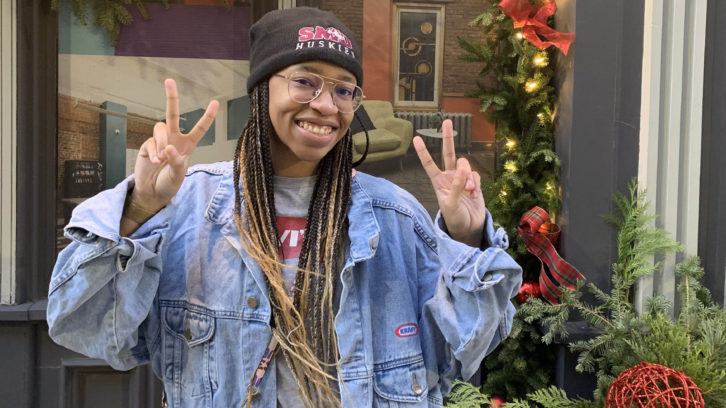
caption
Andrea Pilar Ondo Nsang came to Canada from Spain to study at Saint Mary’s University.Lopera said her group of friends also try to take it into their own hands to try and expand their network.
“We try to gather everyone up, and try to just have a strong community that hasn’t been there. When we came here there was nothing, it was very like, Facebook groups and they would just gather to go bowling,” Lopera said. “There should be like, as I said before, the non-profit organization that helps people.”
Pinto believes the Latin community in the city will continue to grow as years go on.
“I’ve seen it for over 22 years. It’s going to keep going,” Pinto said. “It’s not going to be as quickly as people think. Maybe in 10 years it will be big enough for its own neighbourhood.”
About the author

Abel Rangel
Abel Rangel is a screenwriter and journalist working and living in Halifax, N.S. He earned a master’s degree in transgender studies at New...

Avery Stewart
Avery Stewart is a journalist in Halifax. She has a background in English literature and philosophy.
